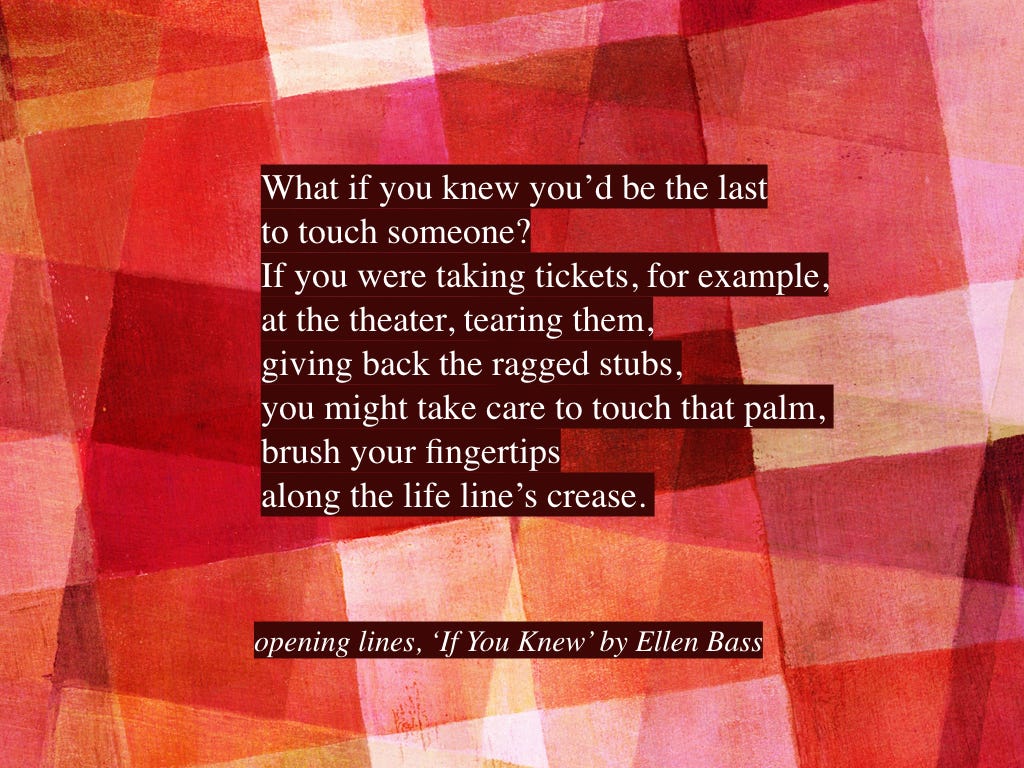Holding Loss
Making space for grief, whatever be its size
Loss is everywhere. People have lost their sense of smell and taste, the healthy fabric of their lungs to the disease. Communities have lost their jobs and businesses. We have lost out on collective experiences of arts and sports. We miss warm hugs from friends and smiles from strangers in the bazaar. These losses might seem trivial, definitely more tolerable but add to the mountain of loss. In 1976, Elizabeth Bishop wrote her famous poem about the art of losing things. She could not have predicted that there will be an era dedicated to it.
I have lost two people during the pandemic. They were not family, but solid characters from my childhood. I lost my neighbour M Uncle last year. He would crack PJs in a Bengali accent and taught me Physics when I was a teenager. For two years before the pandemic, I would bump into him at the gate. 'Ki Re?' he would ask, and I would smile in answer.
Another person I lost was my old neighbour Ru Tai. I have spent about a hundred afternoons with her. She would paint my nails and toes. Then, taking my little chin in her hand, she would apply a little rouge. A little lipstick. On so many Saturdays, she would make cones with old milk packets and fill them up with a thick, green henna paste. She would design Mehendi on my palms, which would quiver until she asked me to keep them still. The next morning, the henna dried up. I would run upstairs, and she would apply black tea and sugar syrup to it - to intensify the colour of the henna. She would be glad to see my palms - an intricate mix of red and beige. To have her fade from the world, like henna, has been tough.
I didn't know the place these people held in my heart until I lost them. Background characters keep the background warm. Their disappearance made holes in the fabric of a fond childhood, the fabric that keeps slipping away anyways.
People have lost far more. They have lost dearer people to the pandemic. The inequality of our losses is painful. I have difficulty imagining the entirety of their situation. I am riddled with the fear of loss, like many.

What I find peculiar is how loss re-introduces someone back to our minds. I dreamt of M Uncle the week he passed. I keep seeing Ru Tai in my mind's eye, while doing the dishes or while reading an article.
Before the pandemic, I feel the world had not lost its innocence entirely. Even then, death would often introduce me to someone. I had not known Nicanor Parra, Ursula K. Le Guin, Anthony Bourdain before the day they passed. Obituaries are strange places to discover someone amazing for the first time.
What would Emily Dickinson write about, were she alive in 2021, in India? Death is no longer the mysterious hero of poetry. It is someone who is arriving everywhere at all times and claiming people who had many years to live. I used to complain how death is an out of syllabus question. Now I wish it had remained so. Children are having to confront it way too early. Social media feeds are piling with love-filled RIP posts. People are bringing the dead alive through anecdotes and old photographs. They are being beautifully public about their regrets and realisations about the person, and in turn, about themselves.
It is almost as if (and this is both hopeful and cynical) the loss of a person reintroduces us to the gifts they offered to our world.
In huge losses, we gain access to hidden love.
When we cry or sulk after receiving these pieces of bad news, small or big, we are not losers, we are simply grieving a loss. And that is important work.



